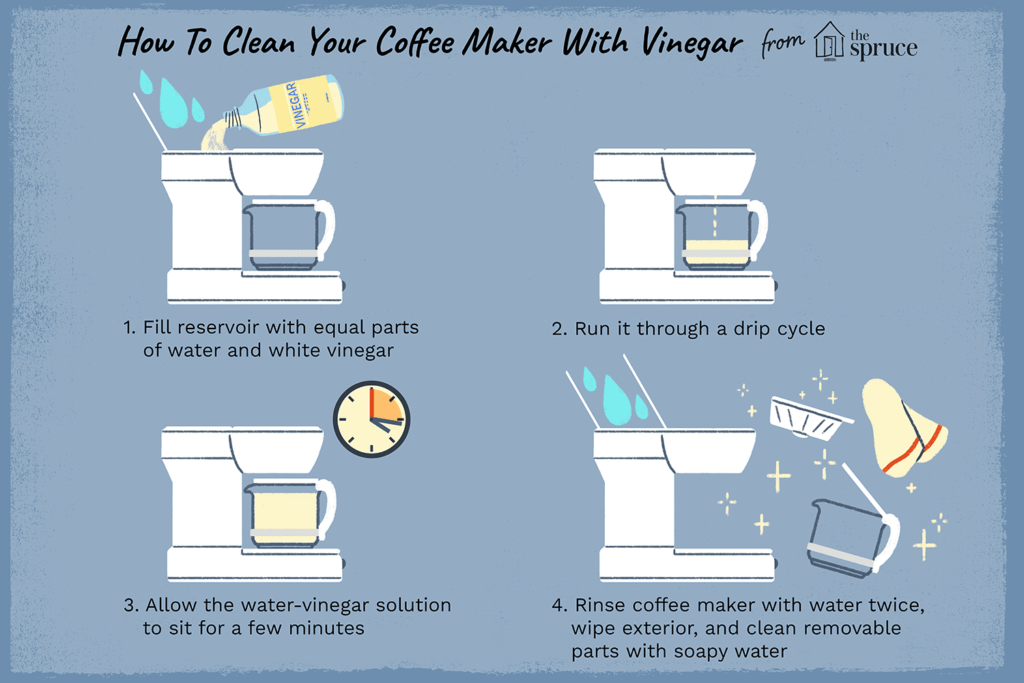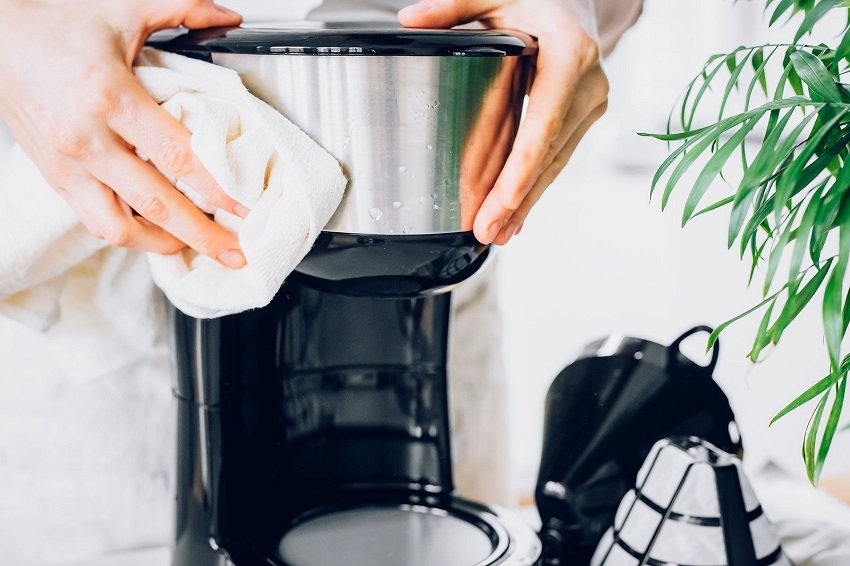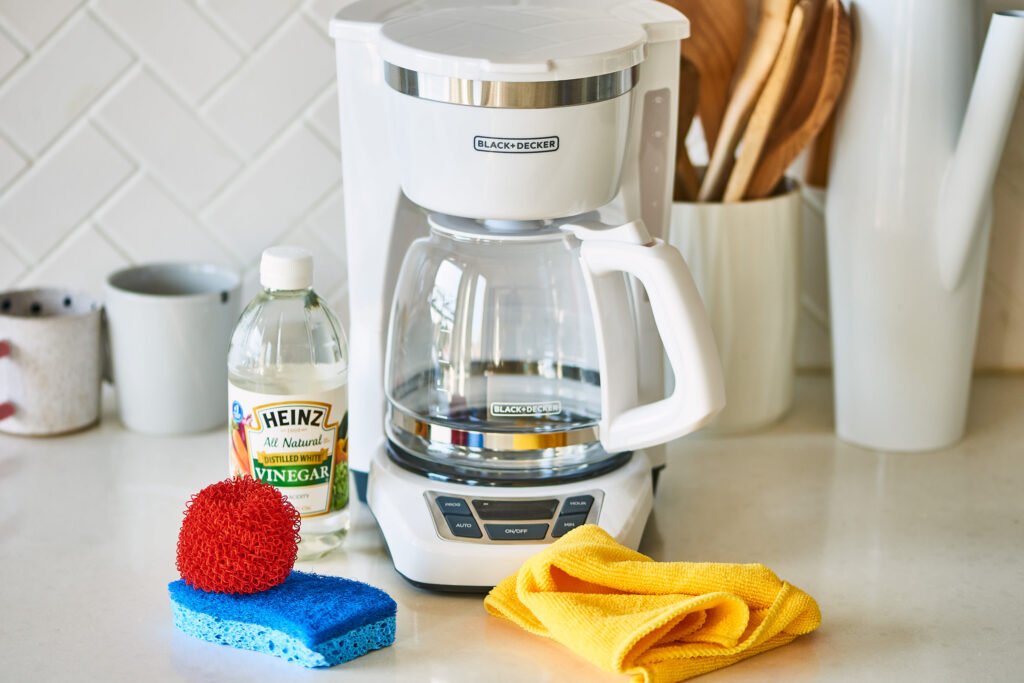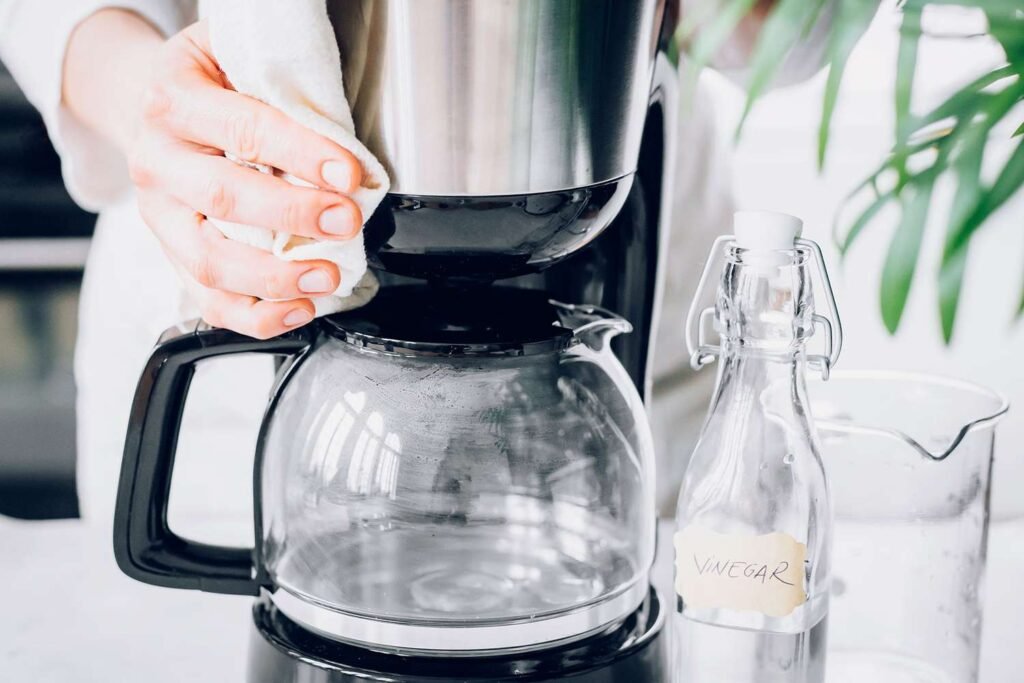Do you ever wonder how often you should run vinegar through your coffee maker to keep it in tip-top shape? Ensuring your coffee maker is well-maintained is essential for producing that perfect cup of coffee every morning. Over time, coffee makers accumulate mineral deposits, coffee residues, and other impurities that can affect the taste and performance of your machine. Using vinegar for maintenance is a natural and effective way to keep everything running smoothly.

The Importance of Maintaining Your Coffee Maker
Maintaining your coffee maker not only improves the taste of your coffee but also extends the lifespan of your machine. Regular cleaning prevents the buildup of bacteria, mold, and mineral deposits that can clog the system. When you neglect maintenance, your coffee maker might start delivering inconsistent performance or even break down prematurely.
Effects of Mineral Deposits
Mineral deposits, primarily calcium and magnesium, can build up over time, especially if you use hard water. These deposits can clog the internal components, leading to reduced efficiency and potentially costly repairs.
Health Implications
Coffee makers can be breeding grounds for mold and bacteria if not cleaned regularly. These contaminants can affect your health, leading to a host of problems including stomach discomfort and infections.
How Often Should You Run Vinegar Through Your Coffee Maker?
The frequency of running vinegar through your coffee maker depends on the type of water you use and how often you brew coffee. Generally, it’s advisable to clean your coffee maker with vinegar every three months.
Guidelines Based on Usage
| Usage Level | Cleaning Frequency |
|---|---|
| Light Use | Every 4-6 months |
| Moderate Use | Every 3 months |
| Heavy Use | Every 1-2 months |
If you notice your coffee starting to taste off or your coffee maker taking longer to brew, it might be time for a vinegar cleanse regardless of your regular schedule.
Why Use Vinegar for Cleaning?
Vinegar is a natural and affordable cleaning agent that’s particularly effective against mineral deposits and bacteria. Its mild acidity helps break down residues without damaging the components of your coffee maker.
Benefits of Using Vinegar
- Natural and Non-Toxic: Unlike many commercial cleaners, vinegar is free from harmful chemicals.
- Effective: It excels at dissolving mineral deposits and breaking down residues.
- Affordable: Vinegar is cost-effective compared to specialized coffee machine cleaners.
Step-by-Step Guide to Cleaning Your Coffee Maker with Vinegar
Regular cleaning using vinegar is straightforward. Follow these steps for an effective vinegar cleanse:
Step 1: Prepare the Vinegar Solution
Mix one part white vinegar with one part water. For example, use one cup of vinegar and one cup of water for a standard coffee maker.
Step 2: Fill the Coffee Maker’s Reservoir
Pour the vinegar solution into the water reservoir of your coffee maker. Make sure you’ve removed any coffee grounds or filters beforehand.
Step 3: Run a Brew Cycle
Turn on your coffee maker and let it complete a full brew cycle. This allows the vinegar solution to pass through all the internal components, dissolving mineral deposits and killing bacteria.
Step 4: Let it Sit
Once the cycle is complete, let the vinegar solution sit in the coffee maker for about 15-30 minutes. This allows the solution to thoroughly clean and disinfect the internal parts.
Step 5: Rinse Thoroughly
Discard the vinegar solution and fill the reservoir with fresh water. Run two to three complete brew cycles with just water to ensure all vinegar residues are flushed out.
Step 6: Wipe Down External Parts
To finish, wipe down the exterior and any removable parts of your coffee maker with a damp cloth. This helps remove any vinegar smell and ensures the entire machine is clean.

Tips for Improved Vinegar Maintenance
While the basic vinegar cleanse is effective, there are additional tips to enhance your coffee maker’s maintenance routine.
Use Filtered Water
Using filtered or distilled water can reduce the frequency of needed cleanings, as fewer minerals will be present to cause buildup.
Clean Removable Parts Regularly
In between your deeper cleanings, make a habit of washing removable parts like the carafe, filter basket, and lids. This prevents coffee residues and oils from accumulating.
Check the Manufacturer’s Instructions
Some manufacturers provide specific recommendations for cleaning and maintenance. Always refer to your coffee maker’s manual for any unique guidelines.
Common Questions and Concerns
Is Vinegar Safe for All Coffee Makers?
Vinegar is generally safe for most coffee makers, but it’s always best to check your owner’s manual. Some high-end machines might recommend specific descaling solutions.
Can I Use Any Type of Vinegar?
White distilled vinegar is preferred due to its high acetic acid content and lack of added sugars or flavors, which can leave residues.
What If My Coffee Maker Still Smells Like Vinegar?
If you notice a lingering vinegar smell after cleaning, run additional water-only brew cycles until the smell dissipates.

Alternative Cleaning Methods
If you’re not a fan of the vinegar method, there are alternative ways to maintain your coffee maker.
Commercial Descaling Solutions
These are specifically formulated to descale coffee makers and are sometimes recommended by manufacturers. They can be a bit more expensive but are very effective.
Lemon Juice
Lemon juice can serve as an alternative to vinegar and has a pleasant scent. However, you might need more lemon juice to achieve the same cleaning power as vinegar.
Long-Term Maintenance Plan
Establishing a regular cleaning schedule ensures your coffee maker remains in good working condition. Combine monthly vinegar cleanses with weekly maintenance of removable parts to keep everything running smoothly.
Monthly Cleaning Checklist
- Run vinegar through the machine
- Rinse with water
- Wipe down exterior and removable parts
Weekly Quick Clean
- Wash the carafe and filter basket
- Wipe down external surfaces
- Check for leftover coffee grounds or residue

Conclusion
Regular maintenance of your coffee maker using vinegar can dramatically improve the quality of your coffee and extend the life of your machine. By incorporating these simple tips into your routine, you can enjoy better-tasting coffee and a more efficient coffee maker for years to come. Remember, a little upkeep goes a long way in ensuring your morning coffee runs smoothly and tastes delicious.
